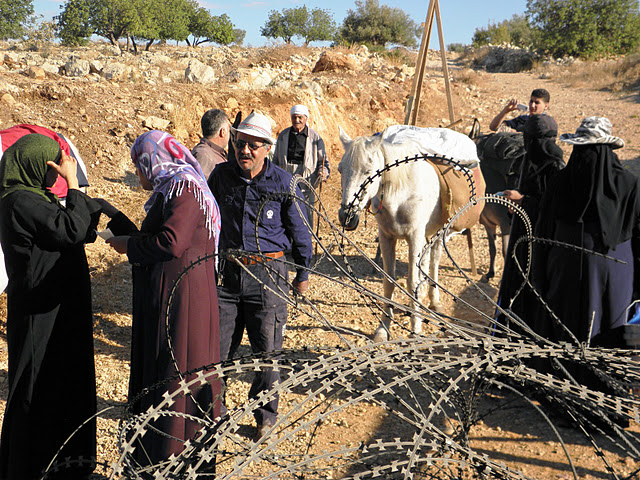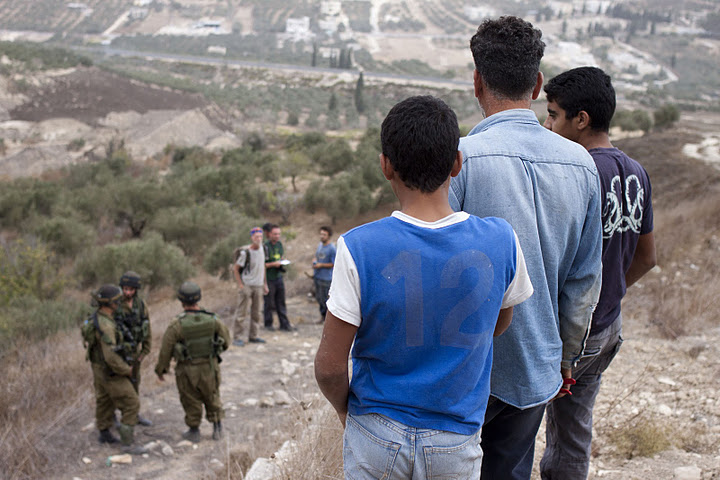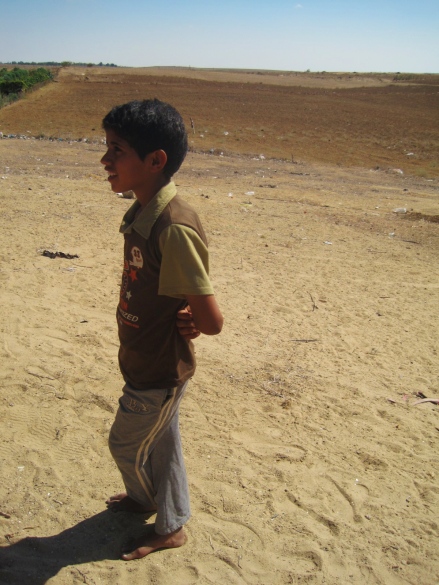Tag: Olive Harvest 2011
-
Nil’in: The solitary confinement of olive trees
by Aida Gerard 31 October 2011 | International Solidarity Movement, West Bank The selective Israeli permission system prevents many families from Nil’in from reaching their land behind the wall to pick their own olives as the olive harvest season nears its end. The families who received permissions have until the 10th November to pick their…
-
Refusing to die in silence: Palestinians resist settler violence during the olive harvest
Ben Lorber 29 October 2011 | Mondoweiss As this year’s olive harvest sends Palestinian families across all of historic Palestine out to their olive trees, a new nonviolent resistance group called Refusing to Die In Silence is patrolling the West Bank, protecting harvesters from increased settler violence. The 2011 olive harvest, which began in early…
-
The Olive and the F-16: Autumn in Gaza
by Radhika S. 27 October 2011 | Notes from Behind the Blockade Today completes another week of olive picking in Gaza. Another week of pausing, breaths held, as Israeli tanks the color of sand moved nearby along the buffer zone, another week of children frightened at the sound of roaring F-16s, another week below the…



